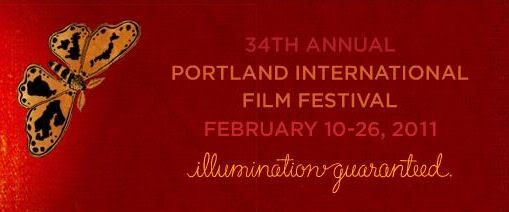 Beautifully and tenderly developed, slow moving and realistically presented, “Of Gods and Men” is the true story of a group of eight heroic French Cistercian-Trappist monks who lived in Tibhirine, located in the Atlas Mountains of northern Africa, during a dangerous time of civil upheaval.
Beautifully and tenderly developed, slow moving and realistically presented, “Of Gods and Men” is the true story of a group of eight heroic French Cistercian-Trappist monks who lived in Tibhirine, located in the Atlas Mountains of northern Africa, during a dangerous time of civil upheaval.
They are self-sufficient, farming on their grounds, cooking from scratch and living modestly. In their Muslim community, they are accepted, respected and appreciated.
However, in the 1990s two factions are at odds in this Shangri-La. The Algerian government loses an election to an Islamic party, but refuses to accept the results. A radical group rises to not only challenge the government but to cleanse the area of all foreigners and infidels, condemned as vestiges of colonialism and representative of the government. The monks end up in the crossfire in more ways than one.
Wounded rebels arrive at the abbey in the dark of night to demand, at gunpoint, medical service. To refuse their request to attend to their wounded leader would not only be met with death, but would be a rejection of both the Hippocratic Oath and the Christian imperative to serve and love others as brothers. However, to aid the rebels would also be seen by the illegitimate government as an act of treason, and a representative of the government militia is quick to remind them of this.
It’s not a matter of taking the side of the more moral faction. Both are insidious choices. The government is corrupt and illegitimate, having lost an election but refusing to vacate the palace. On the other hand, the rebels are going around massacring the poor unarmed foreign workers in the name of ethnic and religious nationalism.
Their eventual dilemma is reminiscent of Sophocles’ “Antigone,” a tragedy rooted in the classic conflict between obeying the law of the state or the imperative of moral obligation. Antigone could obey the state dictate that the executed body of her treasonous brother remain unburied as carrion for scavengers. Or she could obey her conscience and the will of the gods, and give her brother a respectful burial.
This ancient conflict between law and moral righteousness is played out in “Of Gods and Men,” a historic passion play during Algeria’s Civil War, 1993-1996. The monks’ life is based on living out the life of Christ, to the best of their ability, through administering to the sick and the poor with generosity and kindness. Their order forbids proselytizing and encourages service to their surrounding community.
Eventually, though frightened, the monks vote to continue with their vow to assist all who come to them, irrespective of religious or political allegiance. In this decision, facing the ultimate danger, they come as close as possible to truly living the life of Christ.
When a supportive figure from their order arrives for dinner, they explain their simple decision to continue on as they always had. At their evening meal a doctor turns on Tchaikovsky’s “Swan Lake,” a portentous analogy to their own ultimate sacrifice for love. Their home-made wine is distributed and the bread is passed. The entire musical theme is played as the camera spans the silent but evolving expressions of fear, misgiving and eventual holy acceptance on the monks’ faces.
Like Antigone, they embrace what they perceive as the higher principle, the holy mandate. They will turn no one away from their door. This acknowledgement buoys their spirit in a modest unification of purpose and spiritual cohesion in their divine mission.
“Of Gods and Men” plays like an elegy. It moves slowly, majestically forward, inspired, gorgeously colored and reverent. The only soundtrack, besides the Tchaikovsky piece, are real time expositions of the monks singing their Catholic liturgy.
Xavier Beauvois, director, does not spend footage explaining the political situation, researched for this review. Like Denis Villeneuve’s focus in“Incendies,” this year’s Canadian entry for Oscar consideration, Beuavois’ lack of attention to the specifics of the warring factions lets the focus be on questions of moral ethics. When is going against a government’s explicit directive the right course of action?
Antigone’s choice is played and replayed in politics throughout time. The positions of Thomas Paine, Mahatma Gandhi, Dietrich Bonhoeffer, Oskar Schindler, Rosa Parks, Viet Nam Draft Dodgers, Julian Assange and Bradley Manning. When is it anarchy? When does it jeopardize the safety of a nation? And when is it simply the right thing to do?

“Of Gods and Men” 8th Place Best for Feature Film
at the 2011 Portland International Film Festival
Film Credits
Director: Xavier Beauvois
Written by Étienne Comar and Xavier Beauvois
Cast: Lambert Wilson , Michael Lonsdale Olivier Rabourdin, Philippe Laudenbac, Jacques Herlin and Loïc Pichon
Original French title: Des Hommes et des Dieux
Awards: 2010 Cannes Film Festival Grand Prix
Directed and Written by: Xavier Beauvois
Starring: Lambert Wilson and Michael Lonsdale
U.S. Release Date: February 25, 2011
MPAA: PG-13
Runtime: 106 minutes
Country: France
Web site: www.sonyclassics.com/ofgodsandmen/
. . .
Follow Bev Questad on Twitter at http://twitter.com/questad.
And don’t forget to “Like” It’s Just Movies on Facebook at
http://www.facebook.com/itsjustmovies.
“Of Gods and Men” plays at the Portland, OR, Hollywood Theatre during the week of 4/11: http://www.hollywoodtheatre.org/engaging/index.html